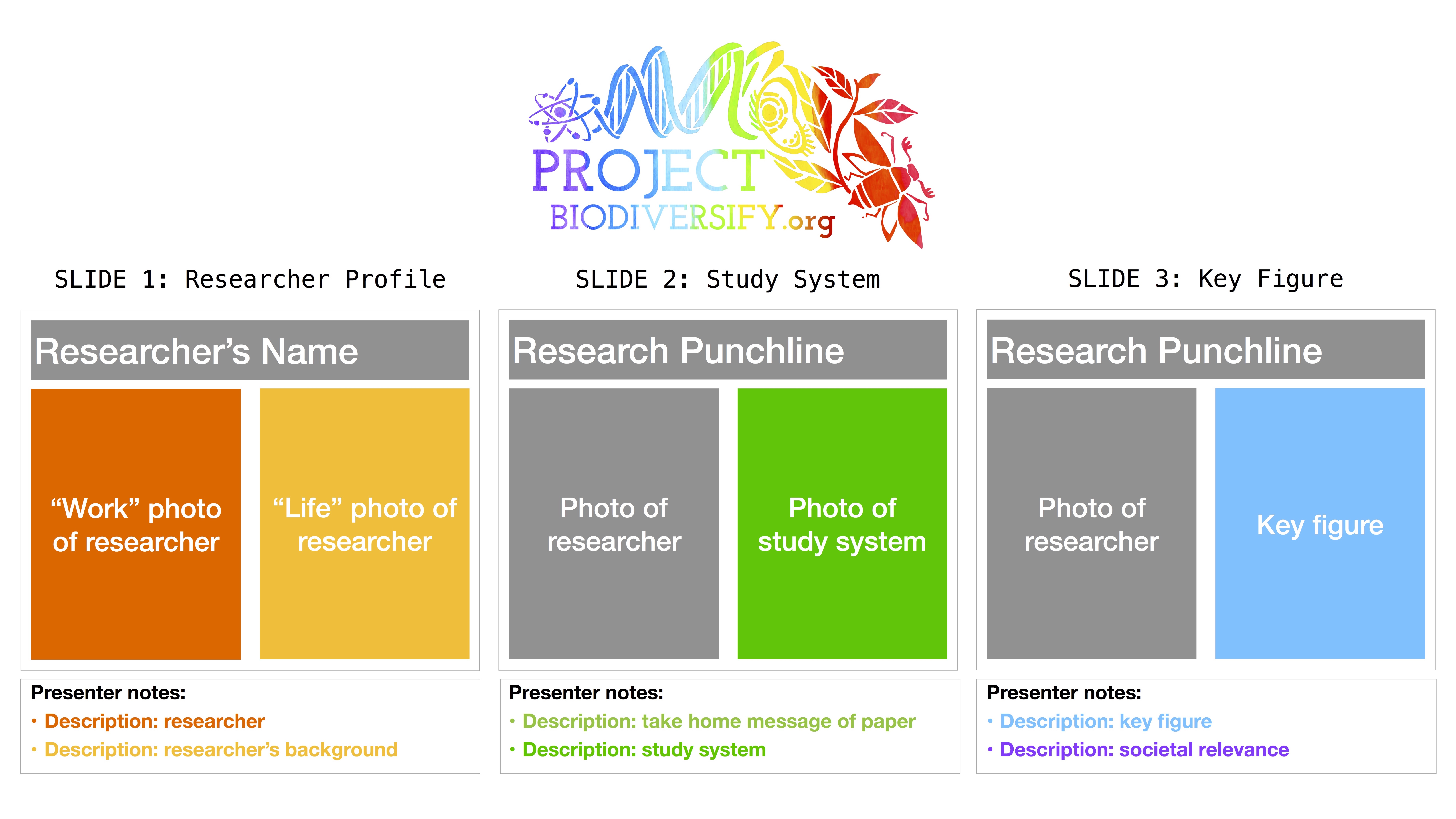
To maintain recruitment and retention, biology teachers face the challenge of finding relatable role models for their students. Our ever-increasing scientific knowledge has been facilitated by people from many different backgrounds, identities, and experiences. However, textbooks and lectures typically present researchers as one-dimensional people that live only to perform science. Highlighted scientists are also overwhelmingly members of majority and privileged backgrounds and groups. The lesson includes materials that will help students create their own slide deck of information about the research and outside interests of scientists at their own institution. The lesson also includes materials that can be used to help initiate discussions about representation and inclusion in science. The lesson introduces students to the research that is being done on their own campus as a way to humanize researchers. The lesson allows students to progress beyond being passive consumers of resources to themselves identifying relatable role models/role models from marginalized groups/backgrounds/identities. In general, the lesson helped students make personal connections to scientists at their institution, humanized scientists, that it made professors less intimidating, and increased their reported confidence in their ability to do research in the future. We provide templates, rubrics, and scaffolding materials from an undergraduate introductory course that instructors can directly implement to engage students in discovering the human side of the researchers on their own campuses and beyond.

Ellisa Carla Parker-Athill onto BIO120
@
on